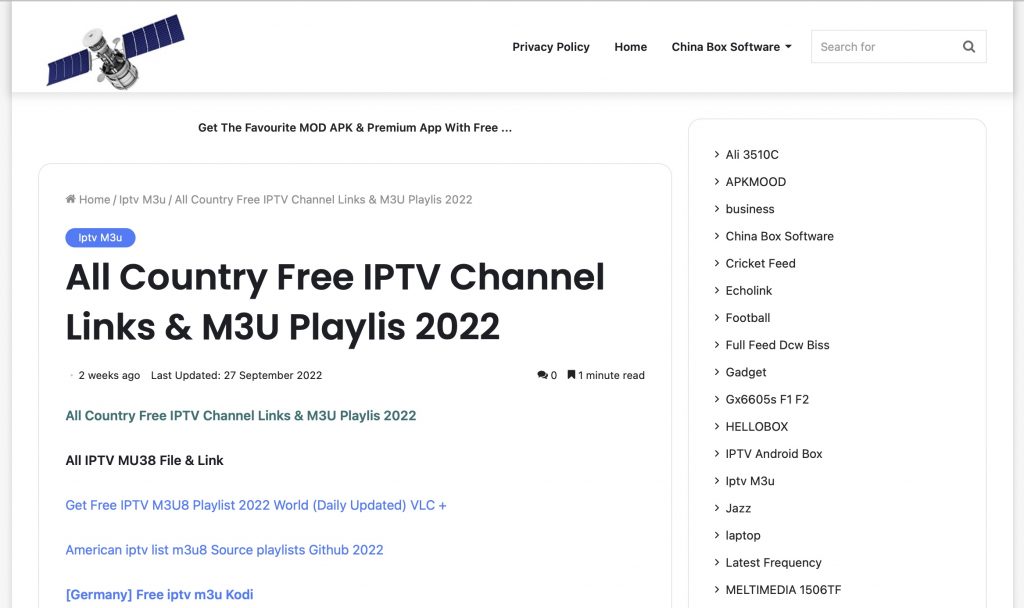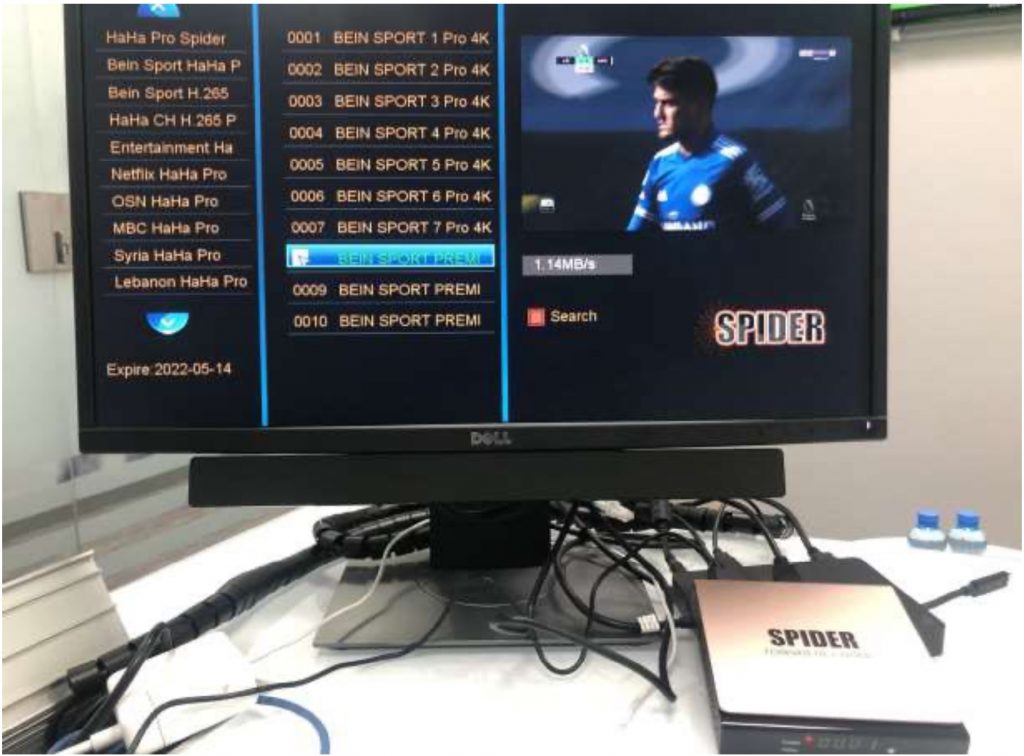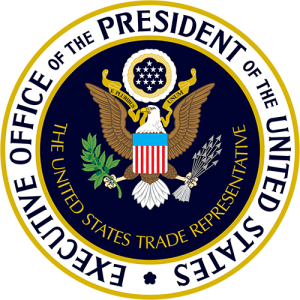Comments submitted to the Office of the US Trade Representative show how the piracy ecosystem has metastasized, and why anti-piracy is no longer a solution searching for a problem. The USTR opened its comment period back in April and the comment period ended on October 7. Among those 29 comments were entries by the Motion Picture Association (and interestingly, not by ACE, the MPA’s enforcement arm), by IBCAP, the Football Association Premier League, beIN Media Group and Miramax LLC.
Many of these entries contain case examples that provide windows into the strategies and tactics used by pirates to steal and illegally distribute content that they own, or for which they offer distribution rights.
Flagrant violations
The submitted entries showcased pirate entities that not only clearly recognize that they aren’t quite following the rules; they position their violations as their key value propositions.
beIN/identified a list of ‘playlist’ sites, including “All Country Free IPTV Channel Links & M3U Playlis (sic) 2022”

They are careful to say that they present only links to the actual infringing content, rather than hosting the content themselves (so it’s OK!)

IBCAP detailed an offshore hosting company called Virtual Systems LLC, which facilitates significant copyright infringement of IBCAP members’ content by catering deliberately to pirates.

According to its filing, IBCAP identified “more than 4,200 unauthorized streams on STB services hosted by Virtual Systems” during the first nine months of 2022. In addition, IBCAP identified “more than 12,700 unauthorized streams … that are available on websites (linear and video-on-demand (VOD), and sent more than 500 takedown notices to Virtual Systems with no response.
Distribution channels
Helpfully, beIN and Miramax sorted IPTV piracy models into an ecosystem comprised of several categories: Content sources / wholesalers, Aggregators, Restreamers / resellers, and Branded device distributors. It detailed examples of specific piracy entities and illustrated how some pirates use multiple channels to market.
The MPA’s entry placed piracy distribution channels into similar categories and listed several examples for each: Linking and Streaming Websites, Direct download cyberlockers and hosting services, Illegal IPTV services, Piracy devices and Apps, P2P and BitTorrent portals, Hosting providers, Registries, Payment processors, Ad networks and Piracy-as-a-Service (PaaS) providers.
Examples in common
Several of the entries, from different organizations, identified the same offenders. For example, both IBCAP and beIN/Miramax identified iStar, an Iraq-based maker of illicit streaming devices (ISDs). The MPA, beIN Media and IBCAP all identified Spider, a Jordan-based seller of ISDs. Both sources pre-load their devices with illegal services.

Others reported by more than one organization were Shbakaty, Squitter and numerous others.
Other submissions – missed opportunities?
Several submissions were by companies known as distribution channels for illegal services. Two prominent anti-piracy industry groups apparently sat this one out.
- Amazon’s entry focused on policing the activities of businesses that leverage Amazon as a retail portal. Interestingly, no mention was made of Amazon’s media and entertainment offerings – such as Amazon Prime service, which surely is attacked by pirates; and Amazon Fire TV, a device environment regularly exploited by pirate apps.
- Similarly, Alibaba Group used its submission as an opportunity to detail its IPR enforcement and anti-counterfeiting efforts and its outreach to retailers using its platform, but made no mention of streaming boxes that consumers can purchase via the Alibaba platform – some of which are bundled with “4K subscriptions.”
Entries were not submitted by the EU-based Audiovisual Anti-Piracy Alliance (AAPA) or the Asia Video Industry Association; both of which have submitted entries in past rounds of this report.
Background
The US Trade Representative office publishes two reports that showcase copyright infringement. The Notorious Markets List is one of those two reports, and has been published annually since 2005.
The other is the Special 301 Report, named after Section 301 of the Trade Act of 1974 (19 U.S.C. §2411) is a statutory framework under which identifies countries and trading partners that violate US trade agreements.
View the comments submiitted online. (via Regulations.gov, Docket USTR-2022-0011).
Why it matters
Media and entertainment stakeholders are wise to recognize piracy as an ecosystem and not simply as the theft of content or services, or “kodi devices.” These are now just individual elements of something much larger.
The submissions to the USTR point to how sophisticated the piracy ecosystem has become, and the examples should be studied – and selectively visited and tested in safely-isolated lab environments – to gain first-hand experience.
It’s also notable that while several of the submitting organizations identified some of the same piracy entities, none of them coordinated their entries with one another.
The Notorious Markets List and Special 301 reports are important for three reasons:
- They provide evidence of the damage inflicted by piracy for consumer and commercial interests
- They provide opportunities for businesses that suffer damage from infringement, counterfeiting or piracy, and by the trade organizations which support them; to champion their causes
- They serve as documents-of-record, used as reference by government agencies and regulators
In fact, several piracy entities are mentioned or showcased in more than one of the submissions – by separate organizations.













